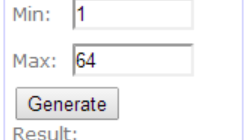Delta Air Lines has canceled serviced from Detroit to Tokyo Haneda as of Sept 30,2012 with little to no signs of resumption of this route or making the route seasonal from Detroit. In fact, Delta has not only canceled this route, but as of the 30th of July they have applied with the DOT to move the route from DTW to my hometown of Seattle.
At this time Delta has not been awarded the right to move the route from Detroit to Seattle, and any rerouting is being objected by competitors at United, Hawaiian, and American. United is asking the DOT to refuse Delta the right to move the route, and instead award the highly contested slot at HND to United, so it can fly daily service from San Francisco.
Despite the Department’s selection of Delta1 to operate daily nonstop Detroit-Haneda and Los Angeles-Haneda B-747 service by Order 2010-7-2, Delta has failed to deliver on the commitments in its Haneda service proposal over the last two years, and granting its request to now move one of its US gateways from Detroit to Seattle (see Motion of Delta filed July 30, 2012 in this docket) would further perpetuate the inefficient use of these scarce, highly valuable Haneda slots. United therefore urges the Department to deny Delta’s request and instead allocate one daily pair of US-Tokyo Haneda combination slots for United to provide scheduled foreign air transportation of persons, property and mail with its own aircraft between San Francisco and Tokyo Haneda. Moreover, United is ready, willing and able to commence daily nonstop San Francisco-Haneda service within 90 days of the Department’s allocation.
Hawaiian is contesting the move from Detroit as well and is asking the DOT to award Hawaiian airlines the ability to launch a second daily service from Honolulu:
Hawaiian finds Delta’s request to move its Detroit service to Seattle without merit and completely counter to the carefully crafted distribution of frequencies established by DOT in the Order. The granting of Delta’s present request to move from its Detroit hub, that it represented to DOT would provide well established and dependable benefits, would undo the carefully crafted distribution of frequencies set forth in the Order. Hawaiian remains committed to increasing its frequencies to Haneda. Should a new selection proceeding be initiated, Hawaiian will actively participate to win that second frequency.
American Airline has been quieter about the move from Detroit and has not officially filed an objection with the DOT (yet), however they have publicly told CAPA that Delta should only be able to move their flight to other cities of operation if American can do the same, if they so desire.
At this point, United’s objection does hold the most merit and I think is more likely to be honored than Hawaiian’s. In 2010, Delta’s original application did state the airline would fly B747-400 on both its LAX and DTW to HND routes. Delta promised to offer 403 seats daily between each city, however since the launch of the route, both routes have reduced the number of seats from 403 daily to a smaller 243 seat A330-200. However due to the economy and inability to fill a B747, Delta has been flying smaller planes on the route.
Delta originally applied for all four slots awarded to US carriers, applying to fly from Seattle, Los Angeles, Detroit, and Honolulu. Delta was awarded the most slots (2) of any US airline (LAX and DTW), while the other two slots went to Hawaiian Airline (HNL-HND) and American (JFK-HND). If Delta wins approval to fly from Seattle to Tokyo Haneda, this will be a win for Seattle, as Delta has expanded its international route structure greatly in the Pacific Northwest with help from its (feeder flight) agreement with Alaska Airline. Delta has expanded from only offering service to London, Amsterdam, and Tokyo in 2008 to offering non-stop between Seattle and Tokyo-Narita (7-8x/wk), Amsterdam (12x/wk), Paris (daily), Beijing (5x/wk), and Osaka (daily).
Although I would love to see Delta’s flight moved to Seattle, I am not sure how feasible this is. United does offer a great argument against it. However if Delta’s pass success with its Asian expansion in Seattle is a sign of the future, then Delta with the help of its codeshare partner Alaska Airline’s Seattle Hub, can successfully fill the flight between Seattle and the highly sought after Haneda. Furthermore, Seattle currently does not have a direct connection to HND, whereas JAL currently flies daily between SFO and HND. If the DOT wants competition on this route, then the move to SFO would make sense, as Delta and Hawaiian currently face competition on their current HNL/LAX-HND routes, however if that’s not a factor, then the move to Seattle makes sense to me.

